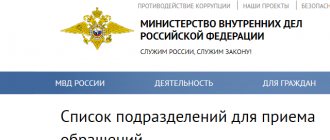Being late for work is a disciplinary violation
The Labor Code of the Russian Federation does not define what being late for work is.
There is a general term - violation of discipline. By signing an employment contract, the employee voluntarily agrees to fulfill his duties by participating in the production process according to the employer’s rules. The employer establishes the work and rest schedule at the enterprise entrusted to him. A regime is an element of labor rules. Their mandatory observance is labor discipline.
Being late for work is a disciplinary offense associated with the inability to perform one’s duties due to absence from the workplace during working hours.
Disciplinary action under the Labor Code of the Russian Federation
Art. 192 of the Labor Code of the Russian Federation establishes the types of disciplinary sanctions:
- comment;
- rebuke;
- dismissal.
The application of other punishments for disciplinary offenses is not provided, but some legislative acts introduce penalties for certain categories of employees. For example, a severe reprimand for military personnel, transfer to a lower position for police officers.
The choice of sanction for an employee depends on:
- the severity of the offense;
- the circumstances of its commission.
Is it possible to deprive a bonus for a disciplinary offense? Read the material.
Useful information from ConsultantPlus
The Supreme Court of the Russian Federation summarized judicial practice for 2021 - 2021. in disputes related to dismissal at the initiative of the employer. See the Review approved by the Presidium on 12/09/2020.
What is considered late for work?
Being late for work should be considered absence from the workplace without a valid reason for up to 4 hours. A longer absence is already absenteeism.
In addition, an employee may be counted as absenteeism, even if he was absent from a scheduled work shift lasting less than 4 hours.
Since we are talking about a violation of labor regulations, in order for it to be recognized as such, the employee must be familiar with these rules in advance. If the person who was late before committing the offense was not officially (on receipt) familiarized with the internal labor regulations, his absence from the workplace cannot be considered late.
For what else are internal labor regulations needed, you will learn from the article “Internal labor regulations - sample.”
For those who, due to the nature of their work, have to visit different sites during the working day (for example, for repairmen, drivers), it should be specially prescribed how to delimit the time they perform work functions, move between sites and time spent for personal purposes.
Dismissed truants win in court and are reinstated at work if the labor regulations were not communicated to them or were drawn up formally, as well as in cases where the employer cannot confirm with documents that a violation of the regime actually occurred.
The fact that an offense has been committed must be recorded. Based on the data from the electronic access control system or based on the results of checking the attendance of employees at work, it is necessary to draw up a report that reflects who, when and for how long was late for work. The report is handed to the violator along with the requirement to provide written explanations on this matter.
A sample report of an employee being late for work is available in the ConsultantPlus system. Get trial access to the system for free and proceed to the sample.
The regulations for the employer's actions when employees commit disciplinary violations are prescribed in the Labor Code (Article 192 of the Labor Code of the Russian Federation).
Terms and other conditions
Punishment for violation of discipline can be applied only within one month from the day the violation became known, and no later than six months from the date the offense was committed. A six-month period is provided for situations where the offense was not discovered within a month.
For each disciplinary offense, only one disciplinary sanction can be applied. For example, an employee cannot be reprimanded for being late and the employment contract cannot be terminated.
When deciding on disciplinary action, the employer should first of all assess the importance of such an employee for the activities of the enterprise, the actual damage caused by such an employee to the organization’s activities as a result of being late. In addition, it should be borne in mind that failure to apply measures to one employee may lead to the fact that others consider compliance with the internal rules of the enterprise as unnecessary. Therefore, if an employee who is very necessary for the organization has a habit of being late, it is more advisable to set him a special, irregular work schedule.
Sample memorandum
Sample order
Valid reasons for being late for work
Since there is no definition in the legislation, there is no official list of valid (disrespectful) reasons for being late for work. At the same time, for repeated failure by an employee to fulfill his duties (due to being late, among other reasons) and in the absence of valid reasons, he faces dismissal (Clause 5, Part 1, Article 81 of the Labor Code of the Russian Federation).
In this situation, talking about what reasons can objectively be considered valid should be based on business customs. Excuses for being late can be:
- illness of the employee himself;
- illness (death) of close relatives;
- accident, change (violation) of transport schedule;
- difficult weather conditions;
- other emergency circumstances.
Confirmation that these events actually took place can be medical certificates, certificates from transport organizations, marks on air and railway tickets, a certificate from the hydrometeorological service or housing department about an accident in the house.
If the employer, after providing such supporting documents, does not require other written explanations from the employee, it can be assumed that the reason for being late is recognized by him as valid and no disciplinary measures will follow.
Name of the position in the employment contract with a foreigner
Information about the position of a foreign worker specified in the work permit does not coincide with the position specified in the employment contract. Is this legal?
No, it's illegal. A foreign citizen has the right to carry out labor activities only if he has a work permit. This document indicates the permitted type of activity (name of specialty, position). Work by a foreigner in a specialty that does not correspond to that specified in the permit is equivalent to work without a permit. This is due to the fact that the quota for issuing such permits can be established by the Government of the Russian Federation with restrictions on profession, qualifications, specialty, countries of origin of foreign workers, as well as taking into account regional characteristics of the labor market.
Thus, the position in the employment contract with a foreign worker must correspond to the position specified in the work permit.
Also see “The quota for attracting “visa” foreign workers in 2021 has been determined” and “The permissible share of foreign workers for 2021 has been determined.”
Reasons for being late for work for which you are punished
There are no gradations of reasons for the duration of lateness, just as the concept of “systematic lateness” does not exist. Any lateness is considered as a violation of discipline.
In the absence of valid reasons, management may first reprimand the employee, reprimand him, and if the offense is repeated, dismiss him (Article 192 of the Labor Code of the Russian Federation). Dismissal is also possible in case of a single absence from the workplace for more than 4 hours.
In this regard, someone who is late 3 times by 5 minutes is formally at a greater disadvantage than someone who is late once by 3 hours. The first has repeatedly committed misconduct, and for this he may be fired, and the second, despite the fact that he has been absent from work longer, will only receive a reprimand or reprimand, since he did not exceed the 4-hour limit established by law.
However, this does not mean that the employer can apply enforcement measures indiscriminately.
The Labor Code requires that the degree of violation be weighed against the punishment assigned for it (Part 5 of Article 192 of the Labor Code of the Russian Federation).
If a dismissed employee goes to court in search of justice, the employer will have to provide evidence of the severity of the crime.
What types of penalties can be applied to an employee for being 15 minutes late, ConsultantPlus experts told. Access the system for free and proceed to the explanations.
Common mistakes when dismissing unpunctual employees
- The employee was fired after the second delay, but the first was not recorded with appropriate documents.
- The employee was fired after the second delay, but the first happened more than a year ago.
- The employee was late twice, but only once for an unexcused reason.
- The employer added up all the employee’s lateness, received more than four hours and declared that this was absenteeism.
If you make these shortcomings and the former employee goes to court, he will be able to achieve reinstatement.
Results
Being late for work is a violation of labor discipline. At the same time, absence from the workplace will not be considered a disciplinary offense if the employee was not familiarized with the work and rest regime or if the employer did not document the violation of the regime and did not demand an explanation from the employee.
Sources: Labor Code of the Russian Federation
You can find more complete information on the topic in ConsultantPlus. Free trial access to the system for 2 days.
How to punish an employee who is constantly late
The procedure for disciplinary action is regulated by Art. 193 Labor Code of the Russian Federation. We wrote more about it and the timing of its use in this article:
- the fact of lateness is recorded in a report, memo, act with signatures of witnesses, etc.;
- an explanatory note is requested from the violator; if it is not received after 2 days, an act of refusal to provide an explanation is drawn up, which is signed by witnesses;
- an order for disciplinary action is issued, with which the offender must be familiarized. In case of refusal to familiarize, a new act of refusal signed by witnesses.
The order specifies the type of penalty. It is important to choose it wisely.
By the way, Rostrud in Letter No. 1493‑6‑1 dated 06/01/2011 states that if the first disciplinary offense is formalized correctly, and the second is grounds for dismissal, it is only allowed to issue a dismissal order in the T-8 form with reference to a memorandum or memo or act. That is, an order for disciplinary action in the form of dismissal is not necessary in this case. But drawing up both administrative documents will not be a violation.
Is it possible to reprimand without reprimand - read here.
What will be the penalties for workers?
It can come from the state or from the employee himself.
Fine from the labor inspectorate
For fining an employee, the entrepreneur risks paying the fine himself. The principled employee will complain to the labor inspectorate. From there they will come with an unscheduled inspection. Inspectors will look at orders for fines, compare wages under contracts with payslips and punish under Art. 5.27 Code of Administrative Offenses of the Russian Federation. An individual entrepreneur faces a fine from 1000 to 5000 rubles, a legal entity - from 30,000 to 50,000 rubles.
Claim from an employee
Deducting a fine from the salary means not paying the employee all the promised money. You can not do it this way. The employee will go to court and recover the cut portion. On top of that, the court will charge interest and add moral damages under Art. 237 Labor Code of the Russian Federation.







